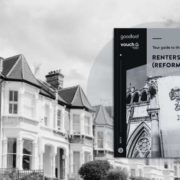It is easy to think in purely local terms, ignoring what is happening elsewhere.
Shortages of lorry drivers, currently posing problems in the distribution chain, are for example far from confined to Britain.
Across the world, the pandemic appears to have persuaded truckers that they do not want to keep on trucking any more.
Similarly, while we may think of our politicians as uniquely useless, people in many other countries share the sentiment about their leaders.
So it is with housing. Much of the discussion about the UK housing market has been about the chancellor’s stamp duty cut and the furlough scheme, and what happens when both come to an end on September 30.
Thus, the latest residential market survey from RICS (the Royal Institution of Chartered Surveyors) reported that housing was taking a “breather” following the end of the full stamp duty cut at the end of June, and the return to pre-pandemic levels of the tax after September 30.
New buyer enquiries were down for the second month in a row, as were agreed sales.
In both cases, survey balances among surveyors were negative, by 14 and 18 points respectively.
Similarly, some worries are resurfacing about what will happen when the furlough scheme draws to a halt after 19 months.
There were still 1.6 million people of full or partial furlough at the end of July, according to official figures.
It is hardly surprising that there has been so much focus on stamp duty. After all, Rishi Sunak cut it with the specific aim of boosting the housing market in its hour of need.
There is, however, a bigger story out there, and if you were in any doubt about that, look at the latest global house price index from the estate agents Knight Frank.
Released on September 14, it showed that the housing boom is not just local. It is very much global.
Knight Frank looked at 55 countries and territories and found that, in the year to June, prices rose by an average of 9.2%.
In a third of the markets the agents looked at, the annual price rise was in double figures.
And, while we have been taken aback by the exuberance of the UK market, the UK only ranked 12th in its league table, albeit with an annual price rise of 13.2%.
We were behind Turkey (29.2%), New Zealand (25.9%). America (18.6%), Slovakia (also 18.6%), Sweden (17.2%), Luxembourg (17%), Australia (16.4%), Canada (16%), the Netherlands (14.5%), Russia (14.4% and Denmark (13.3%).
Not everywhere is booming.
Knight Frank draws a distinction between developed and developing economies.
In the former, advanced industrial countries like the UK, many economies have been experiencing double-figure house price gains.
In the latter, it is a different picture. House prices in India in June were 0.5% down on a year earlier, while in Indonesia they were up by only 1.5%.
The average across developing economies was 4.7%.
It is the advanced economies we should be concerned with, and the fact that prices have been rising so strongly across so many countries tells us something important.
One factor is that, at times of uncertainty, people are drawn to bricks and mortar.
The peculiar nature of the pandemic, which has pushed people into spending more time at home, including working from home, has reinforced this.
More important even than this, however, is that housing markets have been boosted by monetary policy.
Near zero official interest rates and huge amounts of quantitative easing, by America’s Federal Reserve, the European Central Bank, the Bank of England and others have been meat and drink for asset markets, including housing.
That is why the boom has been global.
It means that we should keep a close eye on what central banks do next.
When they begin to tighten policy, either by raising interest rates or reversing QE, some of the impetus that has propelled housing higher will fade.
It will happen at some stage.
There is nothing to suggest that it is going to happen for a while yet, though.
Knight Frank suggests we are close to the peak in the global pandemic housing boom, which seems fair.
But don’t expect this boom to be followed by bust.

























Comments